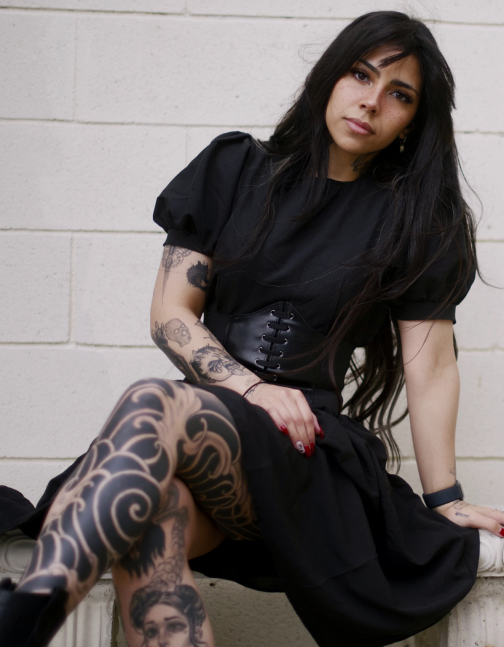

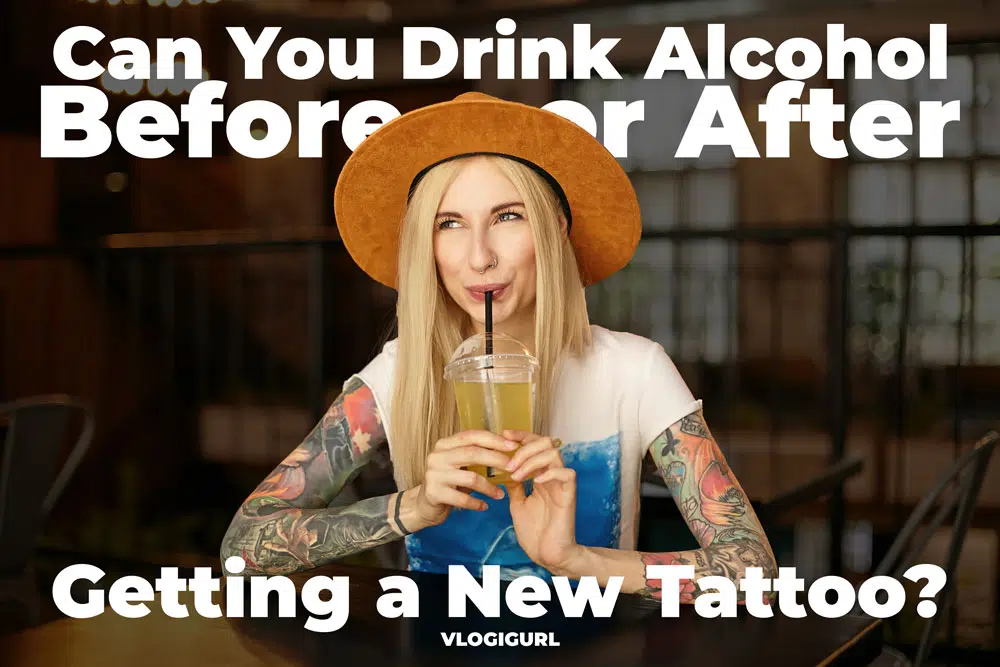
Most people drink to have fun and sometimes to “take the edge off.” However, no matter how nervous you are to get a tattoo, drinking alcohol before and after getting a tattoo can have serious consequences. All regulated tattoo shops and most tattoo artists will refuse to tattoo you if you arrive for your appointment drunk - let alone go to a tattoo shop without an appointment.
Tattoos are permanent, and as you may be aware, you can't make the greatest judgments for yourself when you're inebriated! Also, drinking alcohol prior to your tattoo appointment can cause serious health problems.
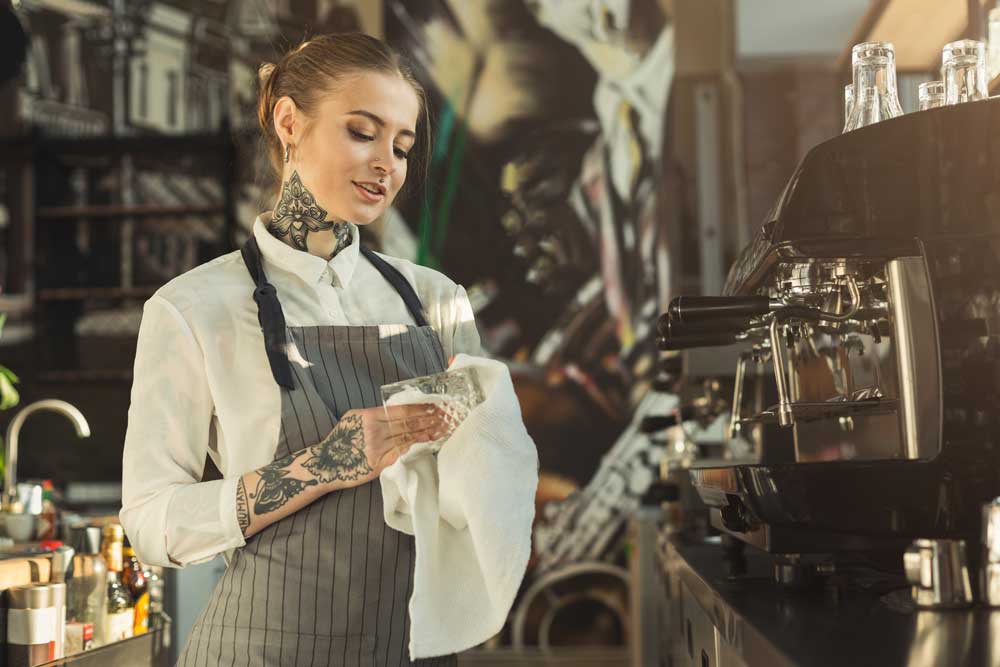
No, you shouldn’t drink alcohol before or directly after getting a tattoo.
You should avoid drinking before getting a tattoo because it has a variety of negative consequences on your body and mind. Alcohol acts as a blood thinner, therefore, it's much more difficult to get ink into your skin. If you drink alcohol before getting a tattoo, your body's healing capacities are harmed, and you won't be in the correct frame of mind. This could result in your tattoo artist turning you down from the start.
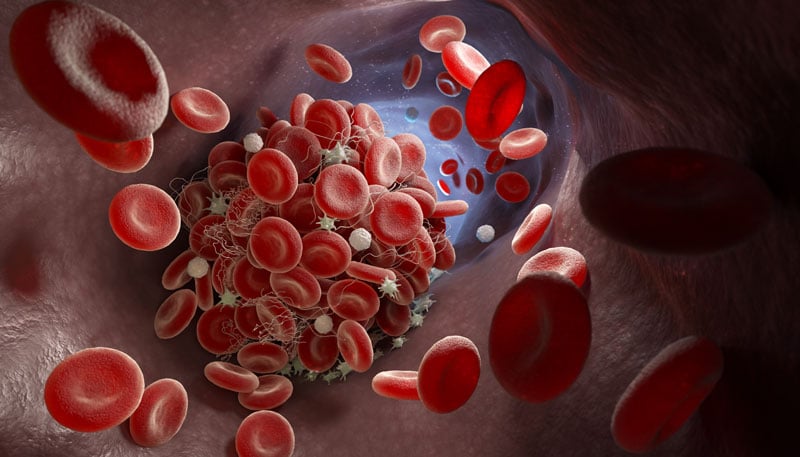
Alcohol has been shown to thin your blood. However, this effect is proportional to the number of beverages consumed. The more alcohol you consume, the thinner your blood becomes. It's important to remember that just one beer or alcoholic beverage can impair your blood's ability to clot.
Now, this effect alone has the ability to trigger a slew of other harmful consequences and issues during the tattooing process such as:
Because alcohol dilutes your blood, you should not drink alcohol for at least 24 hours before your tattoo session. This holds true for any other chemical that dilutes your blood, such as medicines or medication (e.g. aspirin).
Since alcohol thins the blood, significant bleeding and leakage can occur during the tattooing process as the needle enters the skin and produces a wound. This can have a negative impact on tattoo artists' work to the point that they can't see what they're doing. In such instances, visibility is severely hampered, and the end outcome suffers as a result.
Excessive bleeding not only reduces visibility but can also result in a completely ruined tattoo. The tattoo won't be precise, sophisticated, or intricate, or, to put it another way, it won't be what you expect. So, if you don't want to see blood but still want to see your tattoo, avoid alcohol for at least 24 hours before your appointment.
Your tattoo artist will have difficulty putting tattoo ink into your skin if your blood is diluted, and even if they continue to tattoo you, the end result may not be what you and your artist envisioned. The ink will be washed away by the watered-down blood, and the tattoo artist will have to go over the same region repeatedly, causing skin discomfort and agony. As a result, the tattoo will be less attractive and fade.
The body works in such a way that it pumps more blood to an area that is being treated or affected; for example, the affected area during tattooing. Now, because alcohol thins the blood, there will be an excess of blood in the tattooed area, which is unable to clot. The extra blood mixes with the ink, and the tattoo needle penetrates the skin.
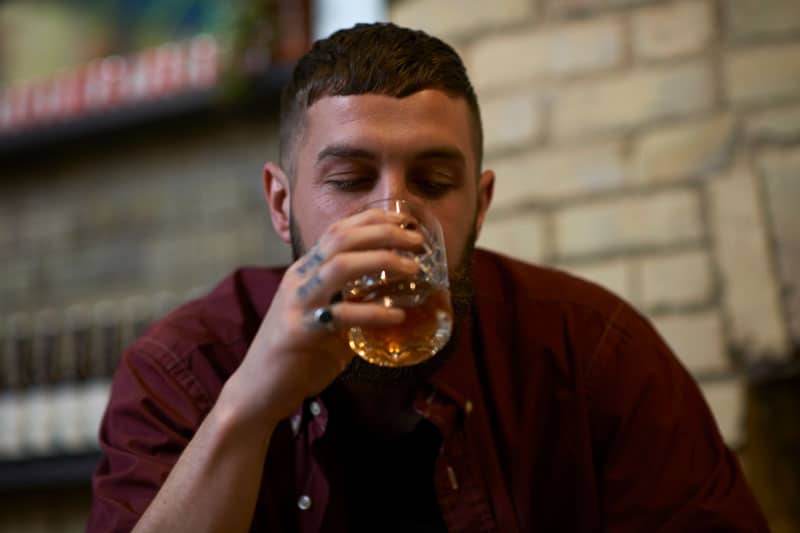
Getting a tattoo, which is permanent, while being drunk might not be the smartest idea, most tattoo artists will also agree. It is best to stay sober and clear-minded because tattooing isn’t just the artist’s responsibility, but yours as well. There will be times during the tattoo process when the responsibility and decision-making will be in your court.
You're not as good at judging whether the design your tattoo artist produced for you is really what you want when you've had a few drinks. A tattoo is always a collaborative effort between you and the artist. Because your skin is their canvas, they naturally want you to be pleased with the end outcome.
When you arrive for your appointment drunk, your decision-making capacity is impaired, and there's a chance you won't like the design when you're sober. Most tattoo artists will refuse to ink an inebriated client for liability reasons alone. After all, you and your tattoo are in the hands of the tattoo artist.
For example, the tattoo artist will ask you to approve the artwork design, the stencil, the way it can be applied to your skin, the placement and the size of the tattoo, etc. All of this requires clear-minded answers, mostly because the tattoo is permanent and it will cost you a lot of money to get it removed once you sober up and realize it is a complete mess.
If you drink alcohol the night before your tattoo, you will most likely have a hangover the next morning. When on a hangover, your pain tolerance goes way down and you often don’t feel like yourself. Your pain tolerance is diminished and a tattoo is certainly no easier to bear with a booming headache.
Tattoo machines are also very loud and tattoo shops tend to be busy. Which is not an optimal place if you have a headache.
You want to be at your healthiest and best when getting a tattoo because then you can tolerate pain better and your tattoo artist can work on your skin more easily. Therefore, ensure to not drink at least 24 hours prior to getting a tattoo.
It's also not a good idea to drink after getting a tattoo. Your immune system will be weakened by too much alcohol, and your body will require all of its reserves and healing capacity to repair your new tattoo. To have the best results for your tattoo, your body must heal as quickly as possible.
To learn more about tattoo healing, check out Vlogigurl’s Ultimate Tattoo Aftercare Guide.
Getting a tattoo is considered a “medical procedure” since a needle is piercing your skin. Since you aren't allowed to drink right after surgery, it is the same thing for tattooing.
Getting a tattoo means you now have a fresh, open wound on your body that needs to heal. In order to heal, the ‘wound’ requires proper aftercare. And, proper aftercare doesn’t include alcohol, and here’s why;
After you got a new tattoo, it will bleed and ooze for the next 24 to 48 hours. That is your body’s response to being treated continuously in one place. If you consume any alcohol in the period, you will simply thin out the blood. This will result in prolonged or continued bleeding, or even excess bleeding, Which can cause several things such as;
Alcohol can impair your body’s ability to heal a wound like a new tattoo. Drinking can prolong the overall healing process and compromise your immune system. Skin is your biggest organ, therefore, your body requires a lot of resources to heal it.
Tattoo aftercare is extremely important for your health and new tattoo. The aftercare routine includes taking care of your whole body internally as well. By eating properly and staying hydrated you’re speeding up the healing process and preventing any tattoo inflammation or infection.

When you’re drunk and you go to sleep, the last thing you think about is the proper sleeping position. When you get a new tattoo you should avoid sleeping on it at all costs. When you are impaired you can easily sleep on your new tattoo causing damage to it. However, since you are drunk you won’t feel the pain and will regret it in the morning.
Drinking often results in uncontrolled behavior, and because your pain tolerance seemingly increases, you feel like you can do whatever you want, even sleep on the tattooed parts of the body. This can create a lot of issues for you such as:

No! It is highly recommended to not drink at least 24 hours before getting a tattoo. But, it is optimal to not drink 2 or 3 days before your tattoo, just to be safe.
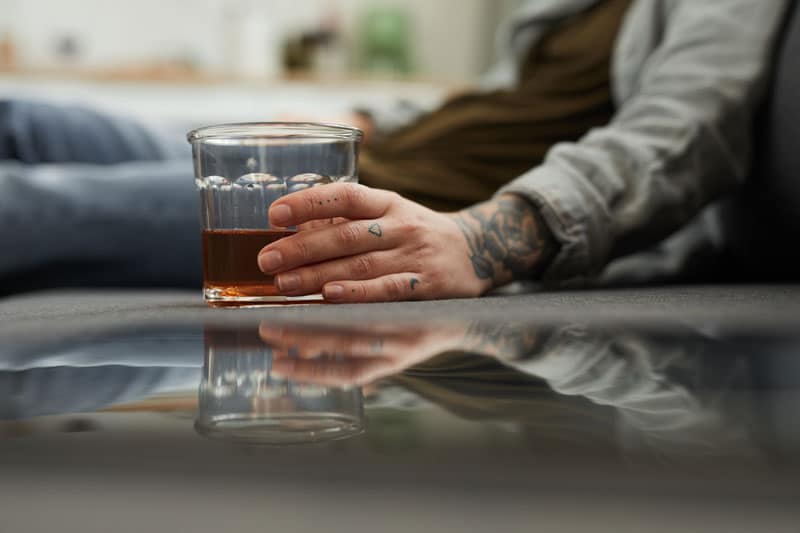
Most tattoo artists will recommend for their clients to not drink alcohol for 24 to 48 hours after receiving a tattoo. This seems reasonable since the first 48 hours are the most crucial in the tattoo healing process and the tattoo will ooze and bleed for up to 48 hours. However, Vlogigurl recommends not drinking for up to a week after getting a tattoo since the first week is hard on your body. You should help support your body in this time instead of making it more difficult.
The reason for this lies in the fact that by the end of the first week your tattoo will start to form scabs and dry skin, which means it is healing properly. There is no risk of blood thinning and excessive bleeding.
Getting a tattoo sounds fun and exciting, but it is also a very responsible and permanent decision. That is why you need your mind and body in optimal shape to endure the tattooing and the healing process. If you still feel nervous about getting a tattoo, doing your research on the entire tattooing process is helpful. For all things, tattoo-related make sure to visit Vlogigurl’s tattoo blog.
It's a common misconception that tattoo artists must have tattoos to be qualified for their job. While there are many reasons why an artist might choose to ink their own skin, from personal expression to guaranteeing the best possible experience for clients, it is not required or expected that they do so. Read on to […]
Are you still glaring at your fresh ink tat, hoping what you see is just part of the healing process? Or are you a tattoo enthusiast who has thus far escaped the dreaded blowout? For the former, sorry to be the bearer of bad news, but a Tattoo blowout does not just go away. And […]
The best tattoo ideas for men. Over 40 categories for you to pick from all hand picked from a professional tattoo artist.
